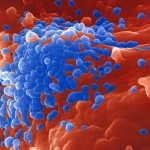Link to Pubmed [PMID] – 17159592
AIDS 2007 Jan;21 Suppl 1:S77-82
BACKGROUND: In France, the third decade of the HIV epidemic is characterized by a lower age among women who have been recently infected with HIV. This study analysed factors associated with the desire for a child in a sample of heterosexual women and men of reproductive age living with HIV.
METHODS: Individuals of reproductive age within the VESPA study were included in the analysis. Desire for a child was analysed according to reproductive potential, cultural aspects and HIV-related health condition (CD4 cell count, plasma HIV load and being on treatment).
RESULTS: A total of 555 women and 699 men who self-identified as heterosexual and did not report a medical diagnosis of infertility, were included in the analysis. Among them, 33% of the women and 20% of the men stated that they expected to have children in the future. In multivariate analysis, significant predictors of the desire for a child included factors associated with reproductive potential (younger age, already being a parent, regular relationship), the HIV status of the regular partner and ethnicity (African origin). HIV-related health status did not affect reproductive intentions among men and women.
CONCLUSIONS: For both men and women, reproductive potential, ethnicity and partner’s HIV status influenced the desire for a child, whereas the person’s own clinical condition in relation to HIV had low impact. Reproductive counselling integrated into HIV care should take into account cultural aspects in order to help people living with HIV examine issues of parenthood.

